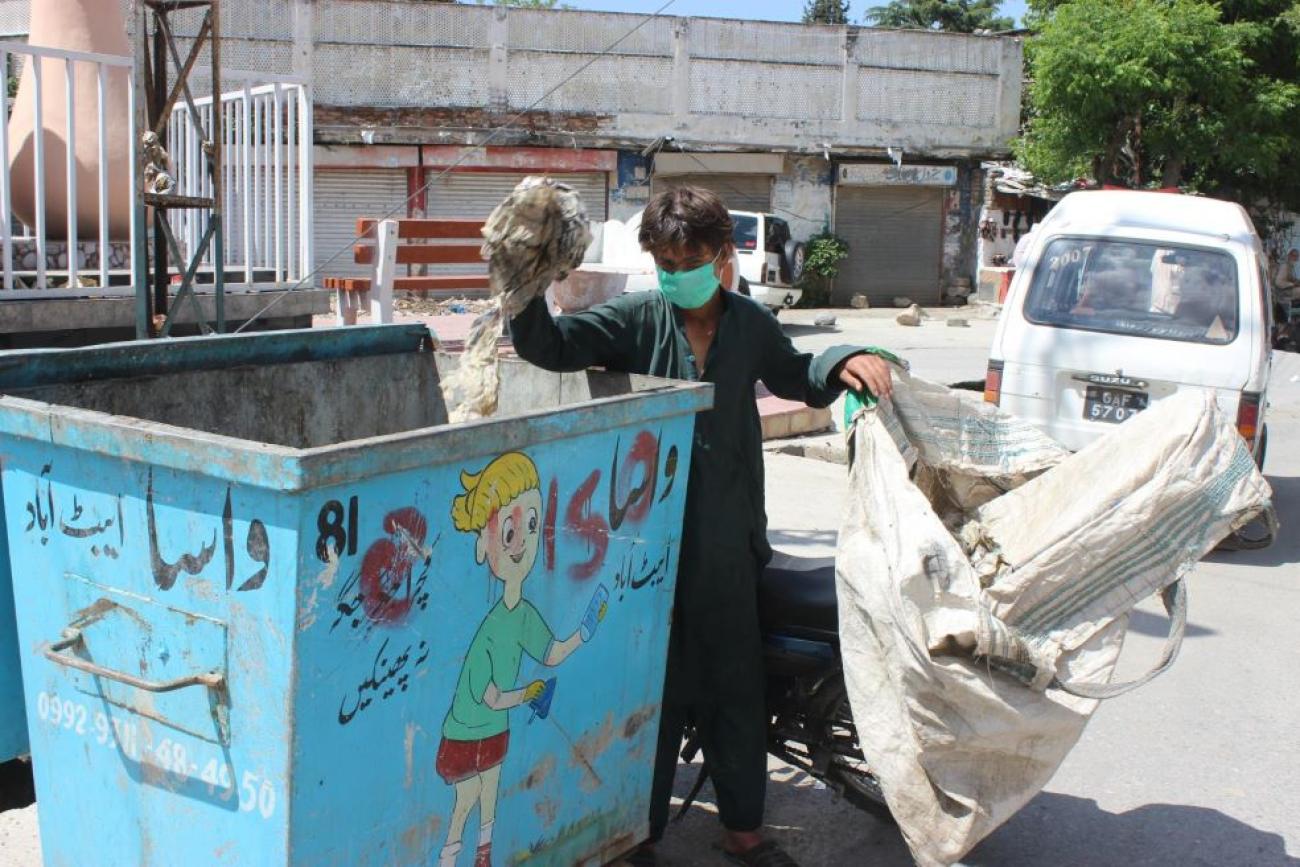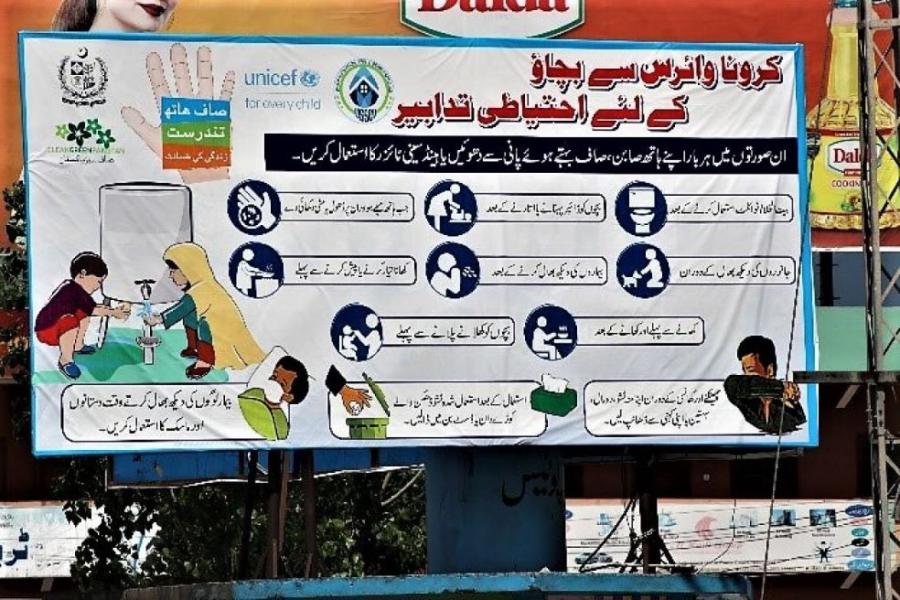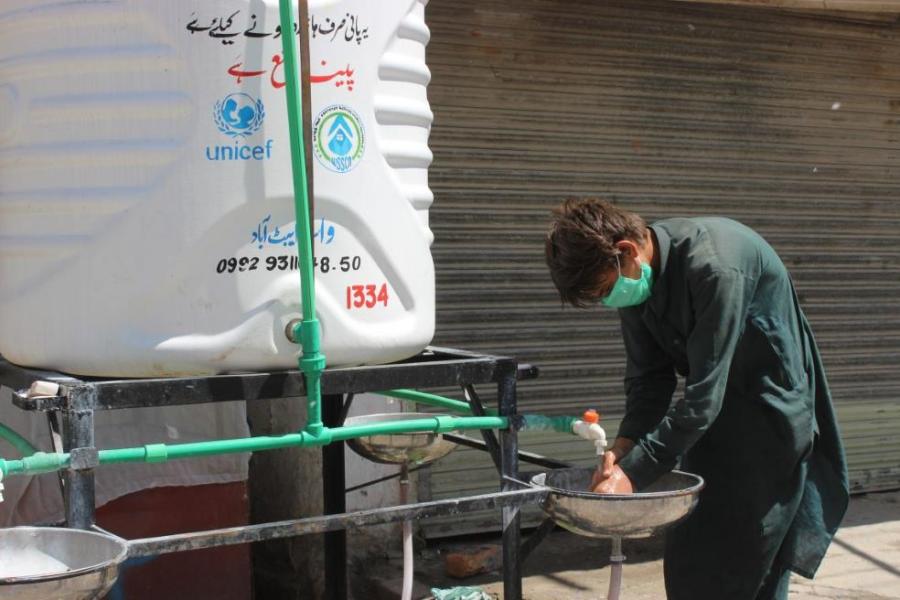Helping vulnerable adolescents fight COVID-19

UNICEF and Abbottabad’s Water and Sanitation Services Company (WSSCA) installed 54 hand washing stations at different locations in the city.
Produced by UNICEF Pakistan. To view the originally published article click here.
“From sunrise to sunset, I search through roadside garbage dumps looking for metal scrapes or any other item that could fetch me some money at the end of the day. This is my livelihood and my family depend on it,” says 19-year-old Naseeb Gul.
As he goes through one of the many waste collection points spread across the Northern city of Abbottabad in Pakistan, the young man says that he has heard about a virus that makes people very sick.
“I heard that it can be caught by touching dirty surfaces, but what can I do? I have to search through garbage dumps all day long to find anything valuable that I could sell,” he tells.
Naseeb Gul is not the only young man who scavenges on rubbish dumps to survive in the city of the Khyber Pakthtunkhwa province. Many others are involved in such hazardous activities, made even more dangerous in the time of the COVID-19 pandemic.
UNICEF and Abbottabad’s Water and Sanitation Services Company (WSSCA) have launched a public information campaign in Abbottabad to raise awareness on the symptoms of the coronavirus and teach the population the behaviours which can help them protect themselves against it. About 3,000 large banners have been put up across the city, urging people to wash their hands with soap regularly and to take other precautions such as physical distancing.
“I know I can get the virus by touching dirty surfaces, but what can I do? I have to search through garbage dumps all day long to find anything valuable that I could sell”
Naseeb Gul
Moreover, thousands of pamphlets have been distributed to the general public including shopkeepers, grocers and public transport drivers, while public service messages are being aired through the local radio station.

This ongoing campaign has helped Naseeb and many others realise the importance of washing their hands with soap for at least 20 seconds several times a day -- one of the best ways to avoid spreading the virus along with physical distancing.
However, washing hands is easier said than done for people like Naseeb, who have limited access to water and soap in the course of their job and even sometimes at home.
This is the reason why UNICEF and Abbottabad’s Water and Sanitation Services Company (WSSCA) installed 54 hand washing stations at different locations in the city. Equipped with running water and soap bars, these stations encourage citizens to wash their hands with soap more frequently in a bid to slow the spread of the virus and improve hygiene conditions. Currently, over 300,000 people are accessing handwashing stations on daily basis.
“When I noticed the large number of water drums being placed all over the city, I didn’t know their purpose,” says Naseeb Gul, putting on a mask. “But once I saw a banner with pictures on it, I understood that they were here to help us wash our hands with soap.”
Gul says that he used to wash his hands only once I got back to home after working all day, using water but no soap as his family didn’t have any.

“Now I wash my hands with soap many times a day, including each time after I touched garbage. I hope that these water drums and soap will stay even after the virus is gone,” the boy says.
UNICEF supports Pakistan’s response to COVID-19 through Risk Communication and Community Engagement; support to Infection and Prevention Control in health care settings; support to the provision of Psycho-Social Support and procurement of essential supplies. UNICEF works with the Government of Pakistan, the provincial governments and other partners to ensure the continuity of essential services during the COVID-19 emergency and mitigate the socio-economic impact of the crisis on children and their families.


